Retro Replay Review
Gameplay
Castlevania: Dawn of Sorrow builds upon the refined “Metroidvania” formula established in Aria of Sorrow, mixing platforming, exploration, and action with the dual-screen capabilities of the Nintendo DS. All of the core action unfolds on the lower touchscreen, with Soma’s movements, attacks, and special moves executed via the D-pad, face buttons, and stylus-based rune drawing. Meanwhile, the top screen displays your map or character statistics, allowing for seamless navigation and quick status checks without pausing the game world.
(HEY YOU!! We hope you enjoy! We try not to run ads. So basically, this is a very expensive hobby running this site. Please consider joining us for updates, forums, and more. Network w/ us to make some cash or friends while retro gaming, and you can win some free retro games for posting. Okay, carry on 👍)
The soul-collection system returns with meaningful enhancements. Instead of simply gathering multiple copies of the same soul to sell or hoard, many abilities now unlock their full potential only when you collect nine duplicates. This design choice encourages strategic farming and trade—especially in multiplayer—rather than mindless grinding. Yoko Belnades’ enchanting shop within the castle adds another layer of depth by letting you merge monster souls into weapons, forging powerful equipment customized to your playstyle.
The touchscreen’s rune-drawing mechanic is a highlight, requiring you to trace specific glyphs to unleash powerful magic spells. These runes open new tactical avenues in boss fights and crowded enemy rooms, rewarding players who learn precise patterns. Additionally, Dawn of Sorrow’s wireless multiplayer mode lets you set up gauntlets of monster-filled chambers, then challenge or cooperate with a friend in real time via DS Download Play. Soul trading between carts further deepens replayability and collection incentives.
For those who pick up the mobile port, the core gameplay remains remarkably intact, albeit with some streamlined inventory constraints. Weapons, armor, and magic spells occupy a strict slot limit, and consumables like life potions and food cannot be stored. However, the addition of the Lost Soul Vial offers a one-time resurrect option, and discovering Bat Altars—usable only in bat form—creates hidden shortcuts. This tailored experience preserves the essence of Dawn of Sorrow while adapting to mobile controls and screen layouts.
Graphics
Visually, Dawn of Sorrow stands out as one of the DS’s most polished 2D action titles. The sprite work is crisp and detailed, with Soma and his enemies boasting a surprising level of animation fluidity for the hardware. Background layers shift and parallax subtly, lending depth to the gothic castle’s twisting halls, towering windows, and flickering torches. The color palette remains rich yet appropriately moody, emphasizing the dark fantasy tone that defines the series.
The dual screens contribute to visual clarity rather than distraction. The top display, reserved for maps or menus, remains static and easy on the eyes, while the bottom screen showcases the on-the-spot action without any graphical slowdown. Boss encounters, in particular, shine here: enormous, multi-phased foes burst into view with dramatic animations, and their attacks fill the lower screen with vivid effects rendered in bright oranges and purples against a dim strobelit backdrop.
Subtle details—like the glint of a newly enchanted sword or the wisps of dark energy emitted by certain souls—add polish and personality to each encounter. Even the touchscreen-runic animations integrate smoothly, overlaying transparent glyphs that don’t detract from the underlying combat. Audio compliments the visuals effectively: haunting organ tracks, chilling monster roars, and crisp weapon clashes all contribute to an immersive atmosphere that remains consistent throughout your journey.
Story
Set one year after the events of Castlevania: Aria of Sorrow, Dawn of Sorrow reunites us with Soma Cruz, a young man with the soul of Dracula. Determined to abandon his dark destiny, Soma tries to resume normal life but is quickly drawn back into conflict when a sinister cult emerges with dreams of resurrecting Count Dracula. The cult’s leader, a charismatic yet demented figure, orchestrates assaults to lure Soma and his allies into the heart of the castle once more.
Familiar faces from the previous game—such as the weapon-obsessed Julius Belmont and the scholarly Yoko Belnades—make welcome returns, each playing crucial roles in Soma’s struggle against the encroaching darkness. The narrative unfolds through beautifully rendered cutscenes and in-game dialogue, striking a balance between moody exposition and character-driven banter. You’ll find yourself invested in Soma’s moral dilemma: will he succumb to the power he wields, or will he define his own fate?
Though the overarching plot follows a familiar Castlevania template—delve into a foreboding castle, topple evil, and face a final climactic showdown—several twists keep the story engaging. Uncovering the cult’s true motivations, witnessing the gradual unmasking of traitors, and confronting Soma’s inner turmoil all culminate in a finale that feels earned rather than recycled. Side quests and hidden lore tablets pepper the castle’s corridors, rewarding thorough explorers with nuggets of backstory that deepen the world-building.
Overall Experience
Castlevania: Dawn of Sorrow is a masterclass in handheld action-adventure design, marrying addictive gameplay loops with rich presentation and a compelling story. The blend of platforming precision, RPG-style customization, and touchscreen-based magic injects freshness into established mechanics. Whether you’re charting unexplored wings of the castle or grinding souls for that final weapon upgrade, the game constantly rewards curiosity and skill.
The audiovisual package stands the test of time: sharp sprites, atmospheric lighting effects, and a stirring soundtrack ensure that each hour spent within Dracula’s lair feels memorable. Multiplayer wireless battles add a social dimension, and the mobile version’s slight tweaks (like the Lost Soul Vial and Bat Altars) demonstrate how well the core experience adapts to different platforms without losing its essence.
For both longtime Castlevania aficionados and newcomers seeking a deep, rewarding action-RPG, Dawn of Sorrow remains a must-play. Its balance of challenge, exploration, and storytelling strikes a sweet spot that few portable titles have achieved. Ultimately, the game delivers more than just nostalgic fan service—it stands as a testament to the enduring appeal of the Castlevania formula on the DS and beyond.
 Retro Replay Retro Replay gaming reviews, news, emulation, geek stuff and more!
Retro Replay Retro Replay gaming reviews, news, emulation, geek stuff and more!
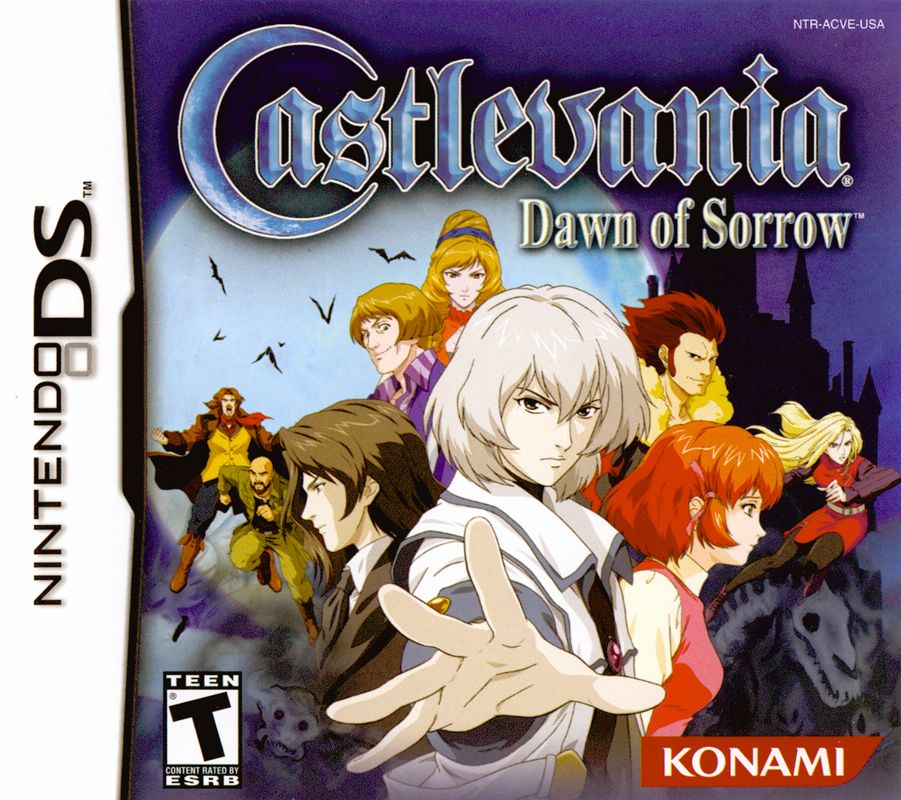
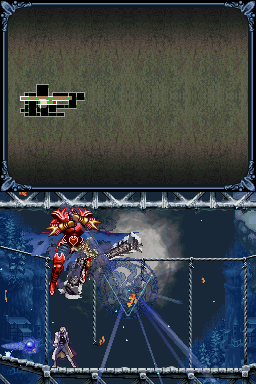
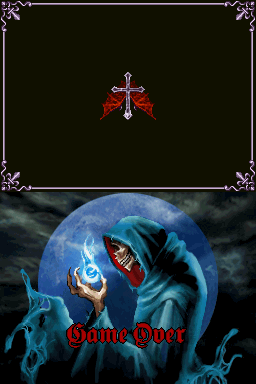
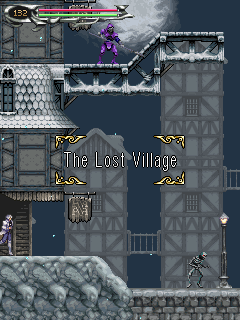
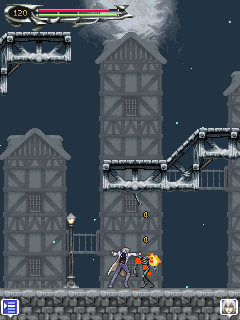
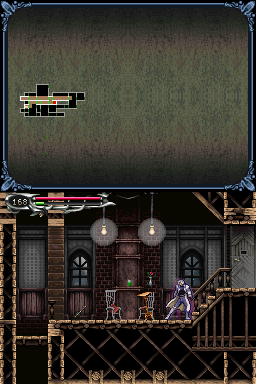

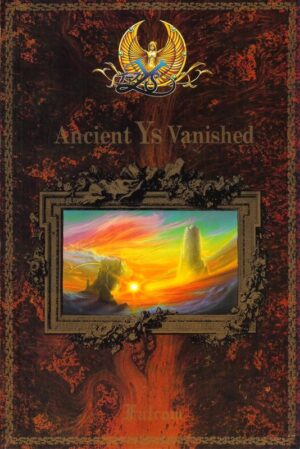

Reviews
There are no reviews yet.